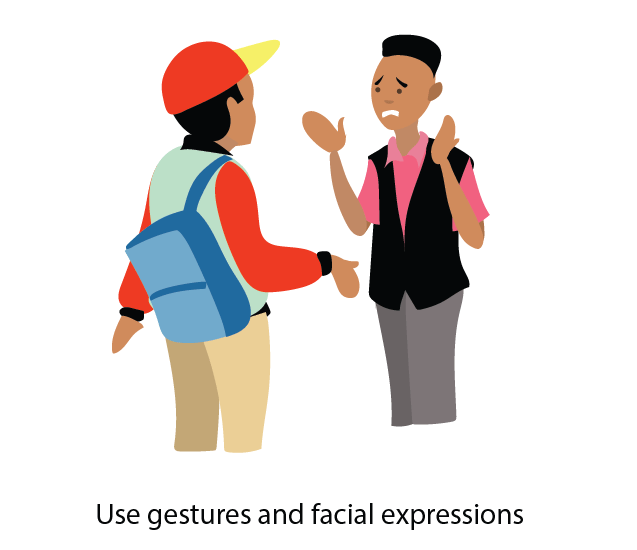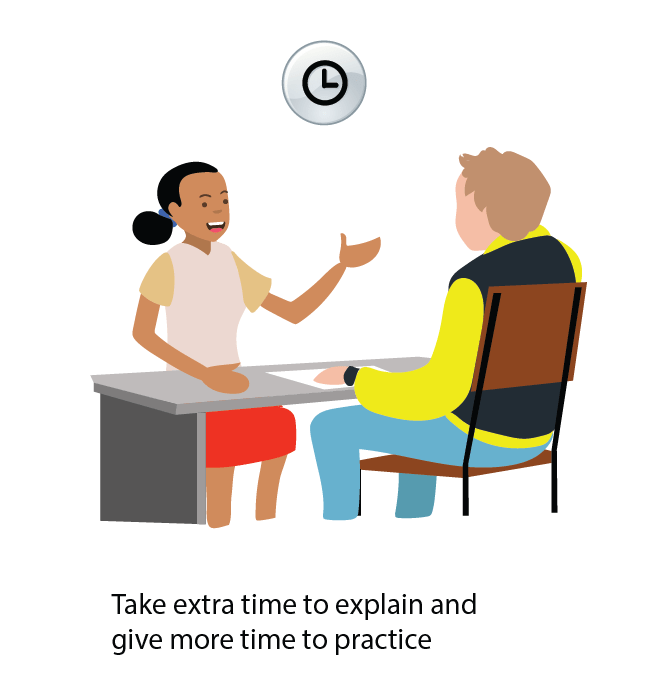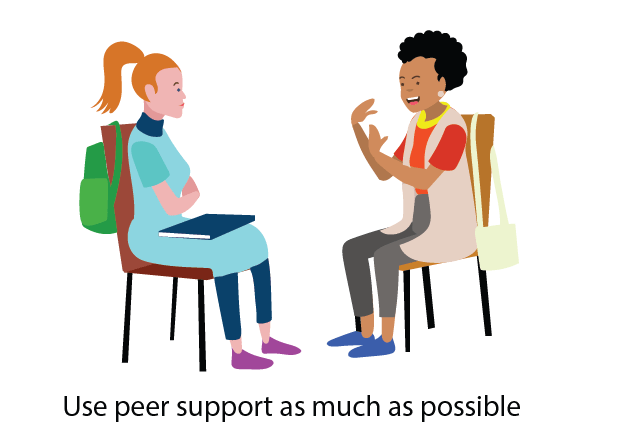What you can find this section
What is intellectual Impairment?
Intellectual impairments refer to life-long limitations of the cognitive and intellectual abilities of a person, often resulting in the person requiring supervision during daily activities. It usually affects:
- The ability to comprehend and learn.
- The ability to solve problems.
- The ability to remember.
- The ability to learn new information and skills, including social skills.
Intellectual impairment often has its onset in childhood and is linked to issues in brain development prior to or at birth. They are also lifelong conditions and cannot be treated with medication.
Environmental factors, particularly things and people that surrounds a person with intellectual impairment, can impact his/her development, particularly during childhood.
There are different degrees of intellectual impairments: mild, moderate, severe and profound.
Degrees of Intellectual Impairment
The average IQ is 100, and to have some sort of intellectual impairment, a person must score below 70. However, in Africa and other parts of the world, many intellectual impairments go undiagnosed. In the absence of an IQ test, there are other characteristics to look out for:
Mild intellectual impairment: people with mild intellectual impairments usually have an IQ between 50 and 69. They may take longer than other people in a similar age range to speak and understand, but they can communicate. They also have minimal or no difficulties in performing activities of daily living (washing, dressing, eating, etc.) by themselves.
Moderate intellectual impairment: people with moderate intellectual impairments usually have an IQ between 35 and 49. They have trouble communicating, understanding and learning when compared to others in their same age range. They also face have some difficulties in performing activities of daily living (washing, dressing, eating, etc.) by themselves and may require assistance even as adults.
Severe intellectual impairment: people with severe intellectual impairments usually have an IQ between 20 and 34. They often face difficulties in movement in addition to challenges communicating, understanding and learning when compared to others in their same age range. They often face a lot of difficulties in performing activities of daily living (washing, dressing, eating, etc.) by themselves and will require assistance even as adults.
Profound intellectual impairment: people with profound intellectual impairments usually have an IQ under 20. They are often unable to move independently, communicate, understand and learning when compared to others in their same age range. They often are unable to perform activities of daily living (washing, dressing, eating, etc.) by themselves and will require lifelong assistance.
How to refer to someone with an intellectual impairment
Avoid using
- Retarded/ retard
- Brain- damaged
- “special ed"
- Tubelight
- Dumb
- Slow
Instead use:
- Person with an intellectual impairment
- Intellectual impairment
This ‘person-first’ language has received wide acceptance among persons with disabilities and their representative organisations. There are also many local derogatory names used in communities and at schools to refer to people with hearing impairments. Such names affect their self-esteem and personal motivation and should be avoided.
How to create an inclusive learning environment for students with intellectual impairments
- Take time and create trust first for the person to feel comfortable with you.
- Speak clearly and use short sentences and easy-to-understand words.
- Repeat or rephrase what you have said if needed and/or to aid understanding.
- Use pictures or other visuals to demonstrate key concepts as mush as possible
- Do not use a childish voice or exaggerate.
- Use easy read material with simple messages and short sentences.
- Have a quiet and calm place for talking.
- Take your time and don’t hurry
- Use gestures and facial expressions. For example, look sad when you are talking about being unhappy.
- Check with the person if they understand what you are saying.


Most importantly, ask the person (and/or their caregiver) how they want to be addressed and supported.
Specific advice on including of students with intellectual impairments in the classroom/institutions of higher learning
- Give clear instructions, one at a time
- Break down a task into smaller steps
- Give tasks one by one —> add the next task when the previous task is mastered
- Take extra time to explain and give more time to practice
- Make sure there is enough leisure/rest time between learning periods
- Repeat information regularly
- Use different approaches to enhance understanding
- Be generous with praise and encouragement
- Discover ways to reduce disruptive behaviour with consultation with their family/ assistants.

- Create an individual action plan with realistic objectives for the students to reach
- Raise awareness to improve their social inclusion and prevent bullying
- As a trainer you need to be patient and flexible.
- Ask what they can and want to do.
- Give life skills training when needed.
- Parents/caregivers need to brought on board/engaged
- Use peer support as much as possible
- Make sure the work or learning environment is safe, remove any potentially harmful/hazardous materials/equipment or ensure use with close supervision.




